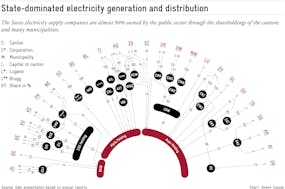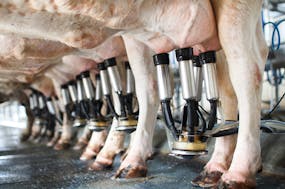The result of the US presidential election brought widespread relief for the Swiss, whose consensus culture left many struggling to adapt to Trumpian ways. Despite that, high-level bilateral political contacts were seldom as intensive as during the Trump era. The US President visited Switzerland twice, while his Secretary of State Mike Pompeo even stayed several days, touring the Swiss Parliament, the old town of Bern and the Castelgrande in Bellinzona.
Bilateral exchanges culminated in Donald Trump’s invitation to Ueli Maurer, Federal President at the time, to visit the White House. Swiss diplomats and trade experts worked hard to exploit the opportunity to air their trade policy concerns. Ed McMullen, the US Ambassador to Bern appointed by Trump in 2017, also used his direct line to the White House to set up meetings and provide strong support.
All those who had hoped for substantial results from these intense contacts were of course disappointed by the election result. The chance to conclude a free trade agreement (FTA) with the US was over, as was clear from various Swiss commentators after the Biden victory.

(Louis Velazquez, Unsplash)
Realistically, however, and despite the optimism that grew over the past four years, Switzerland should not overestimate its position on the priority list of US foreign trade policy. Further up the queue were – and still are – heavyweights such as China and the EU, with which the US is discussing the settlement of trade disputes. The “special relationship” and the greater economic power of the UK also make it more of a priority for the US. This ranking will hardly change under a new US administration – especially since Switzerland already deliberately gambled away a first chance for a FTA in 2006.
But a Biden government need not be less advantageous for Bern than the Trump presidency – despite the expected lower media attention to bilateral exchanges. From Switzerland’s perspective, strengthening multilateralism remains paramount. The Trump administration withdrew from many international organizations such as the WTO, the WHO and the Paris Agreement. Under Biden, Washington is likely to return to the negotiating table, not least not to leave the international stage to China alone. This is an opportunity for Switzerland as well.
The second choice for Switzerland after multilateralism is to conclude bilateral agreements. Here too some changes might be forthcoming. Should the US and the EU decide to resume the talks on an economic agreement that were put on hold in 2016, Switzerland would (again) find itself under pressure. Then, as now, an agreement between Switzerland’s two most important trading partners would not be without consequences for Bern. Calculations suggest the reciprocal tariff reduction between the EU and the US would have led to an estimated Swiss GDP decline of 0.5 percent due to trade-diverting effects and the consequences of more restrictive rules of origin for Swiss exporters (World Trade Institute 2014, Balestieri 2014).
In such a situation, Switzerland would have no choice but to respond to the economic challenge. It would become crucial to join political groups for urgent domestic reforms – notably on agricultural policy – to facilitate a trade agreement.
Besides, with the help of the “Friends of Switzerland Caucus”, the country can count on strong advocates in both the US Senate and House of Representatives. Among them is Don Beyer, Democratic Congressman and former US Ambassador to Switzerland (2009-2013), who in October 2019, along with 19 other parliamentarians, called on the US Trade Representative to conclude a free trade agreement with Switzerland.
An additional platform for exchanges is offered by the “good services” Switzerland continues to provide for the US in Iran. President Biden will likely make good use of the contacts between Washington and Tehran via Bern, especially regarding a resumption of the nuclear agreement terminated by President Trump. Switzerland should also focus on the topic of vocational training as a door-opener for talks with the Biden administration – the future first lady Jill Biden had already informed herself about this in Switzerland in 2014.
The wealth of experience of Swiss trade diplomats and politicians – after all, with over 75 countries Bern probably has the densest network of FTAs in the world (by contrast, the US boasts just 20) – Switzerland will be able to develop further opportunities under the new administration. These will have to be further expanded and exploited more energetically than before. To achieve this, Switzerland – and above all economics minister and future Federal President Guy Parmelin – must commit explicitly to free trade, even against domestic political resistance and without being instrumentalized by domestic lobbies.
The US and Switzerland are both in a difficult economic situation due to Covid-19. A FTA would create tens of thousands of jobs on both sides of the Atlantic (Dümmler and Anthamatten 2019). The Swiss case for pushing ahead with striking a deal is more urgent than ever.





